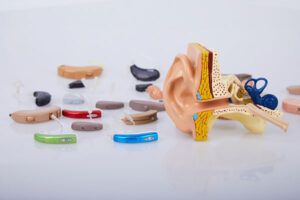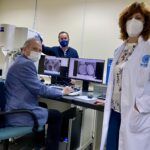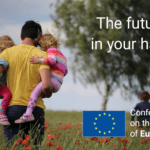The 55 ERC project beneficiaries who have been awarded an ERC Proof of Concept Grant call 2020 – first cut have been announced and will receive around 8,250,000.
Of these, 5 projects will go to Spanish centres, where 5 researchers will be able to explore the marketing and social potential of their research results.
Spain is the second country of the European Union (EU27) in number of grants, with a return of 15.15% EU27; 10.87% EU28. The list is headed by the United Kingdom and Germany, with 13 and 9 projects respectively, concentrating 40% of the projects.
More than 1000 beneficiaries have launched their PoC project since 2011
The ERC Proof of Concept Grant funding scheme is only open to Principal Investigators who already have an ERC project (Starting, Consolidator, Advanced and Synergy Grant). The PoC 2020 call will still have two more closures for evaluation during 2020: on May 7th and September 17th. ERC projects must be underway or completed within the last 12 months before 1 January 2020. The total budget for the three cuts in 2020 is EUR 25 million.
The researchers who have obtained a Proof of Concept project in the first cut of 2020 in Spain are:
- Pablo Artal, University of Murcia. OpMaEye_Optical device to measure the density of the macular pigment in the human eye.
- Antonella Consiglio, Bellvitge Institute for Biomedical Research Foundation. NeurAntigen_A Human Neural Platform for Assaying Antigen-Antibody Interactions for Autoimmune Encephalitis.
- Pablo Menéndez, José Carreras Leukemia Research Institute Foundation. IT4-TALL_Clinical translation of a novel CD1a-directed CAR for relapse/refractory cortical T-cell Acute Lymphoblastic Leukemia: feasibility, efficacy and safety.
- Juan Daniel Prades Garcia, University of Barcelona. Stick-n-Sense_A user-friendly approach to widespread gas monitoring.
- Natasa Przulj, National Supercomputing Centre. GENETTA_Genomic Data-Fusion Platform for Omics-Driven Precision Medicine.
First round winners in 2020 – Proof of Concept call
- Habitability of Martian Environments: Exploring the Physiological and Environmental Limits of Life (HOME) – Advanced Grant 2013
Dirk Schulze-Makuch is a professor at the Technical University Berlin, where he leads the Astrobiology Research Group and searches for extraterrestrial life. In the course of his research he developed instruments to detect life on Mars. This included tools to spot microbes and their behavior in the natural environment. His new Portable Device for Detecting Pathogens (PortPath) for applications on Earth is a spin-off of this work. An easy-to-use software together with low-cost hardware will indicate whether pathogens are present in a water sample. PortPath promises to be faster and cheaper than previous detection methods, and could be used also by non-medical laypersons. The device will first focus on cholera pathogen, which kills some 140,000 people per year in developing countries. Later, its potential will be tested for detection of other pathogens, as well as in food safety applications.
- A Fully-Implantable MEMS-Based Autonomous Cochlear Implant (FLAMENCO) – Consolidator Grant 2015
Hearing loss affects around 6% of the world population and harms people’s social, emotional, and economic wellbeing. For more than 40 years cochlear implants have been used to restore hearing. They bypass the damaged hair cells and directly stimulate the auditory nerve by means of a cochlear electrode. Today they are implanted in around 420,000 individuals worldwide. However, these devices have many drawbacks. Haluk Külah from Middle East Technical University in Turkey aims to eliminate these downsides to create the first fully implantable, low-power, energy-harvesting next generation cochlear implant that mimics the natural hearing mechanism of the ear. The implants are expected to give more natural and clear sound. Moreover, being fully implanted, the new device will not suffer from risks of mechanical damage or contact with water, and should not raise users’ aesthetic concerns.
- Chronotype, health and family: The role of biology, socio- and natural environment and their interaction (CHRONO)
Genetics play a key role in understanding multiple diseases, holding promise for medical interventions and drug targets. Although genetic data is vital for scientific discovery, the largest datasets are now held by commercial direct-to-consumer (DTC) genetics companies, with increasingly limited access to scientists. Individual citizens, however, are ‘data owners’ and can freely download and donate their DTC genetic data, digital archives and surveys. The aim of DNA4Science, proposed by Melinda Mills from University of Oxford, is to develop a sustainable social business enterprise to ethically distribute donated data for use by certified scientists on a cost-recovery basis. Researchers will gain access to unique and novel data and functions including aggregated digital phenotypes, the ability to add customised questionnaire modules, cost-effective data collection and professional, rapid dissemination. DNA4Science has the potential to lower treatment costs and hasten their speed to market, as well as to democratise data ownership, putting citizens rights first.
More information
Fifty five grantees of the European Research Council have been awarded ERC Proof of
Concept grants (27 April)







Leave a Reply